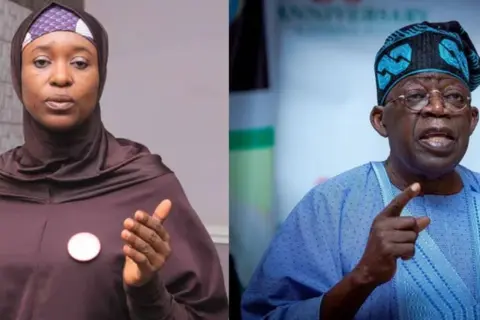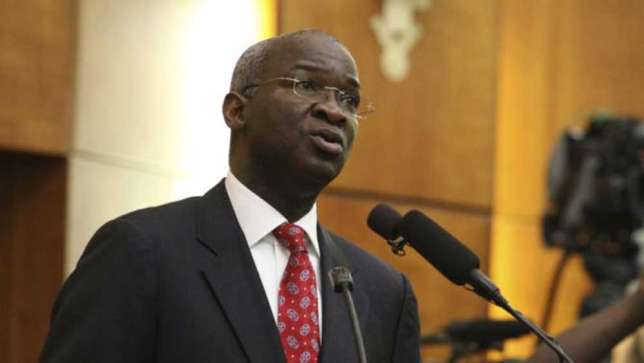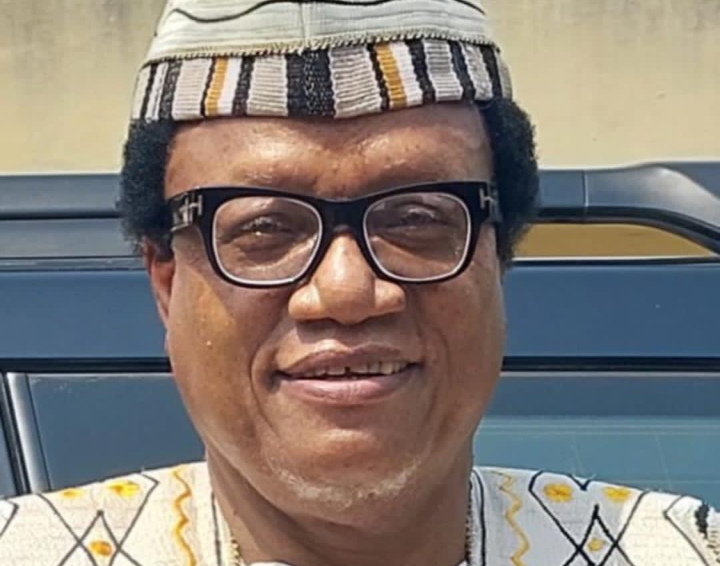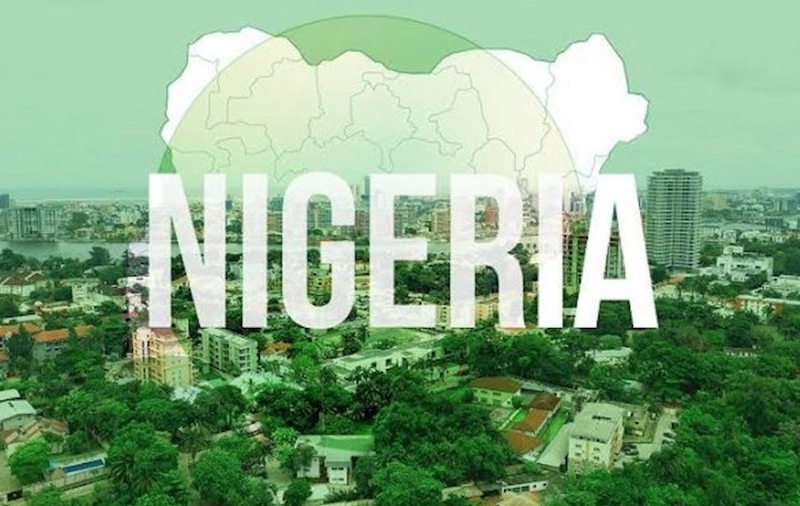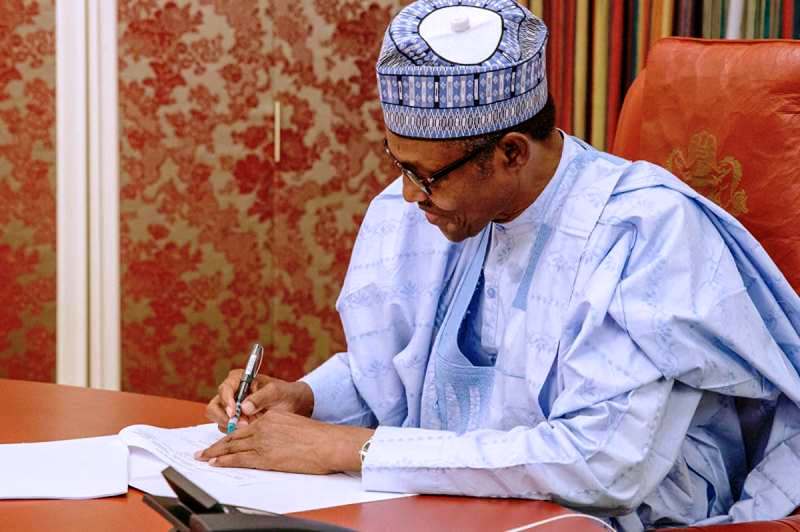Dennis Onakinor discusses the phenomenon of “Dark Money” vis-à-vis electioneering campaign financing in democracies across the globe. He observes that the associated problem is not restricted to nascent democracies like Nigeria, and that even the advanced Western democracies, like the US, are equally susceptible. Citing Columbia and Nigeria as examples, he highlights the danger dark money poses to the growth and development of global democracy.
In his 2012 book titled “There Was A Country: A Personal History Of Biafra,” Africa’s all-time foremost novelist, the late Chinua Achebe, decried the destructive influence of political godfathers and moneybags in Nigerian politics. According to him, “Nigerians will have to find a way to do away with the present system of godfatherism – an archaic, corrupt practice in which individuals with lots of money and time to spare (many of them half-baked, poorly educated thugs) sponsor their chosen candidates and push them right through to the desired position, bribing, threatening, and, on occasion, murdering any opposition in the process.”
Characteristically, Achebe then offered a plethora of solutions to the intractable problem. Chief among his solutions is the need to overhaul the country’s election campaign financing rules, in order to pave the way for both rich and poor desirous of joining the political process. Hear him: “We have to find a way to open up the political process to every Nigerian citizen. Today we have a system where only those individuals with the means of capital and who can both pay the exorbitant application fee and fund a political campaign can vie for the presidency. It would not surprise any close observer to discover that in this inane system, the same unsavory characters who have destroyed the country and looted the treasury and the nation blind are the ones able to run for the presidency!”
Achebe, who joined his ancestors on March 21, 2013, might as well have proffered his solutions in the light of Nigeria’s just-concluded political parties’ primary elections. In course of those primaries, some aspirants on the platform of the ruling All Progressives Congress (APC) and the main-opposition Peoples Democratic Party (PDP) engaged in unprecedented profligacy, in a manner that would have shamed medieval Mali’s Emperor Mansa Musa, who was said to have dispensed gold-money like water during his 1324 pilgrimage to Mecca – to the extent that the precious metal lost its value, globally.
Outstanding amongst the APC and PDP profligate moneybags was the duo of Bola Tinubu and Abubakar Atiku. Humorously, a political analyst dubbed both men “the dollar-chewing money men,” for their propensity to deploy vast amounts of the US’ currency towards achieving their political aspirations. Unsurprisingly, both have emerged the presidential flagbearers of their respective parties. And, with each poised to match the other dollar for dollar, pound for pound, and euro for euro (forget the fast-depreciating Naira), the 2023 presidential race promises to be an all-out war between two infamous moneybags, with the electorate being the mass-casualty.
Had Achebe, a world-acclaimed master storyteller, conducted a global enquiry into the issue of election campaign financing, he would have discovered that the problem of moneybags in politics is not peculiar to Nigeria, and that it is a global phenomenon from which the advanced Western democracies are not even immune. He would also have realized that while nascent democracies like Nigeria have their notorious moneybags and godfathers, advanced polities like the US have their own powerful billionaires, Political Action Committees (PACs) and Super-PACs. Ultimately, he would have concluded that “big money” is a threat to the growth and development of democracy, globally, and that the threat is even more pronounced in the so-called bulwark of global democracy – the USA.
In US’ politics, the floodgates of big money were thrown wide open in the aftermath of the January 21, 2010 Supreme Court ruling (Citizens United vs. FEC), which held that the “First Amendment” prohibits the government from restricting independent expenditures for political campaigns by wealthy billionaires, corporations, PACs and Super-PACs. The ruling effectively opened the way for labor unions, trust funds, corporations, and other non-profit organizations to spend unlimited amounts of money on electioneering campaigns, so along as they do not directly coordinate their spending activities with election candidates or political parties.
Expectedly, “Citizens United” (as the court ruling is simply referred to) let loose an avalanche of PACs and Super-PACs as wealthy billionaires, corporations, and special interest groups began to funnel huge sums of money to political campaigns, anonymously. It signaled the rise of “Dark Money” phenomenon in American politics. As the name denotes, dark money is money spent to influence the voting public or a political outcome without the source of the money being disclosed.
In the wake of the controversial court ruling, President Barrack Obama denounced it as a “huge blow” to American democracy. On its fifth anniversary, he again condemned the court ruling for enthroning a system that doesn’t work for ordinary Americans: “Our democracy works best when everyone’s voice is heard, and no one’s voice is drowned out. But five years ago, a Supreme Court ruling allowed big companies – including foreign corporations – to spend unlimited amounts of money to influence our elections. The Citizens United decision was wrong, and it has caused real harm to our democracy. With each new campaign season, this dark money floods our airwaves with more and more political ads that pull our politics into the gutter. It’s time to reverse this trend …”
Dark money has been a contentious issue in most democracies across the globe. Unlike the US, Canada and most European countries are unambiguous in their stance on the issue. For instance, in 1997, the Canadian Supreme Court (Libman vs. Quebec) ruled that the government can legitimately intervene to preserve the equality and fairness of the electoral process by placing restrictions on both individual and corporate financial involvement in electioneering campaigns. Elsewhere, some countries have opted for public financing of political campaigns in a bid to curtail undue influence of wealthy donors. Interestingly, most Western democracies, including the US, practice a mix of public and private financing, even as they tend to lay emphasis on the latter.
On the African continent, Libya’s Colonel Muammar Gaddafi is reputed for making concerted efforts to address the problem of dark money in his country’s political process. In 1973, four years after overthrowing the Libyan monarchy, he came up with a self-styled system of direct democracy: “Jamahiriya” or “State of the Masses.” Weird and utopian in conception, the Jamahiriya entailed a pyramidal system of various representative groups, with Gaddafi sitting atop the pyramid. In practice though, the system only served as a labyrinthine power structure that enabled his brutal dictatorship for a record-setting 42 years, before he was violently toppled in course of the Arab Spring in October 2011.
Nigeria’s General Ibrahim Babangida also sought to address the problem of dark money in electioneering campaign financing. Upon seizing power in a palace coup in August 1985, he embarked on a half-hearted money-guzzling transition programme, creating two identical political parties – the Social Democratic Party (SDP) and National Republican Convention (NRC). In truth, the two-party concoction was a smokescreen for his self-succession agenda. Reluctantly, he conducted a presidential election on June 12, 1993, only to inexplicably annul the results of the election, which was generally adjudged free and fair, and presumably won by the SDP candidate, Moshood Abiola. Thus, the dictator’s political experiment ended on a self-destructive note.
There is no doubting the fact that money plays a vital role in the electoral processes of most democracies, as it facilitates viable electioneering campaigns. Oftentimes, the difference between a victor and a vanquished in an election is the amount of money available to each contestant. For, candidates legitimately require money for the acquisition of media space (newspaper, television, radio, and internet advertising); hiring of strategists and consultants; and hiring of influencers in this era of social media ubiquity.
Be that as it may, the destructive role of dark money in present-day democracies cannot be overemphasized. Senator Elizabeth Warren of the US lays it bare in a 2021 statement: “Money slithers through every part of our political system, corrupting democracy and taking power away from the people. Big companies and billionaires spend millions to push Congress to adopt or block legislation. If they fail, they turn to lobbying federal agencies that are issuing regulations. And if they fail yet again, they run to judges in the courts to block those regulations from taking effect … But before all of that – before the legislative process even starts – lobbyists and billionaires try to buy off politicians during elections.”
If an advanced democracy like the US is susceptible to such high-level corruption, as claimed by Senator Warren, then the prevailing situation in Third World nascent democracies is better imagined. Columbia and its notorious drug-trafficking billionaire, Pablo Escobar, exemplify the Third World’s situation. With a colossal fortune estimated at 30 billion dollars, Escobar had no difficulty winning election into the Columbian Chamber of Representatives in 1982. Murderous and unscrupulous, his foray into Colombian politics showed the extent of the corruptive influence of dark money in global politics.
In Nigeria, the nefarious political activities of money bags, like Chris Ubah and the late Lamidi Adedibu, are well known. Violent and extortionist, both epitomize the typical Nigerian political godfather portrayed by Achebe earlier in this piece. Respectively, Ubah and Adedibu sponsored Governor Chris Ngige of Anambra State and Governor Rasheed Ladoja of Oyo State, in the 2003 general elections. Each of them subsequently rendered his protégé’s state ungovernable due to money-related disagreements. And, in what would make for a Nollywood blockbuster film, Ubah kidnapped Governor Ngige is a failed bid to force him to resign. Such is the power and reach of dark money in Nigerian politics, and possibly in most Third World states.
In his 2006 memoir titled “You Must Set Forth At Dawn,” Nigeria’s Literature Nobel Laureate, Wole Soyinka, described an attempt by a “consortium” of “powerful figures” to draft him into the 1999 presidential race. Upon complaining that he had no money to finance a local council election, not to talk of a presidential contest, he was given an assurance: “That is the least of your worries. Your campaign budget is guaranteed. You will not spend a penny of your own money.” Suffice to say that Soyinka wisely declined the offer, noting that it could only end up in “a head of state with built-in obligations to undemocratic forces. A hostage.”
Unlike Wole Soyinka, most political aspirants across the globe have no qualms accepting sponsorship from dark money sources, so long as they achieve their objectives. Achebe alluded to this scenario in his aforesaid book: “The key, as I see it, lies in the manner in which the leadership of the country is selected … What I am calling for is for Nigeria to develop a version of campaign election and campaign finance reform, so that the country can transform its political system from the grassroots level right through to the national party structures at the federal level.”
Achebe’s call is equally applicable to nearly every other democracy across the globe, because the problem of dark money vis-à-vis election campaign financing is the same everywhere, varying only in terms of degree of severity. Perhaps the world needs to pay greater attention to his call as contained in his aforesaid book. For, if allowed to go unchecked, dark money portends grave danger for global democracy, especially nascent democracies like Nigeria.
- Dennis Onakinor, a global affairs analyst, writes from Lagos – Nigeria. He can be reached via e-mail at dennisonakinor@yahoo.com
